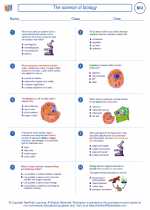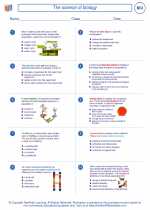Insulation
Insulation is the process of reducing or preventing the transfer of heat through materials. In biology, insulation is important for maintaining the body temperature of organisms, especially in endothermic animals like mammals and birds. Insulation can be achieved through various mechanisms, including physical barriers, such as fur, feathers, or fat, and physiological processes, such as vasoconstriction and shivering.
Types of Insulation
There are several types of insulation that are important to understand:
- Thermal Insulation: This type of insulation prevents the transfer of heat and helps to maintain the internal temperature of an organism. It is essential for thermoregulation in endothermic animals.
- Electrical Insulation: This type of insulation is used to prevent the flow of electricity, reducing the risk of electric shock and short circuits.
- Sound Insulation: Sound insulation reduces the transmission of sound through materials, helping to minimize noise pollution.
Biological Importance
Insulation is crucial for the survival of organisms in different environments. For example, in cold climates, animals rely on insulation to retain body heat and avoid hypothermia. In contrast, in hot climates, insulation helps to prevent overheating and maintain a stable internal temperature.
Study Guide
To better understand insulation, consider the following study guide:
- Define insulation and explain its significance in biological systems.
- Describe the different types of insulation and provide examples of each type.
- Explain how insulation contributes to thermoregulation in endothermic animals.
- Discuss the role of insulation in protecting organisms from extreme temperatures and environmental conditions.
- Compare and contrast insulation mechanisms in different species, such as mammals, birds, and reptiles.
- Explore the impact of insulation on energy conservation and metabolic processes in organisms.
By thoroughly understanding the concept of insulation, you can appreciate its vital role in maintaining the well-being and survival of living organisms.
.◂Biology Worksheets and Study Guides High School. The science of biology

 Worksheet/Answer key
Worksheet/Answer key
 Worksheet/Answer key
Worksheet/Answer key
